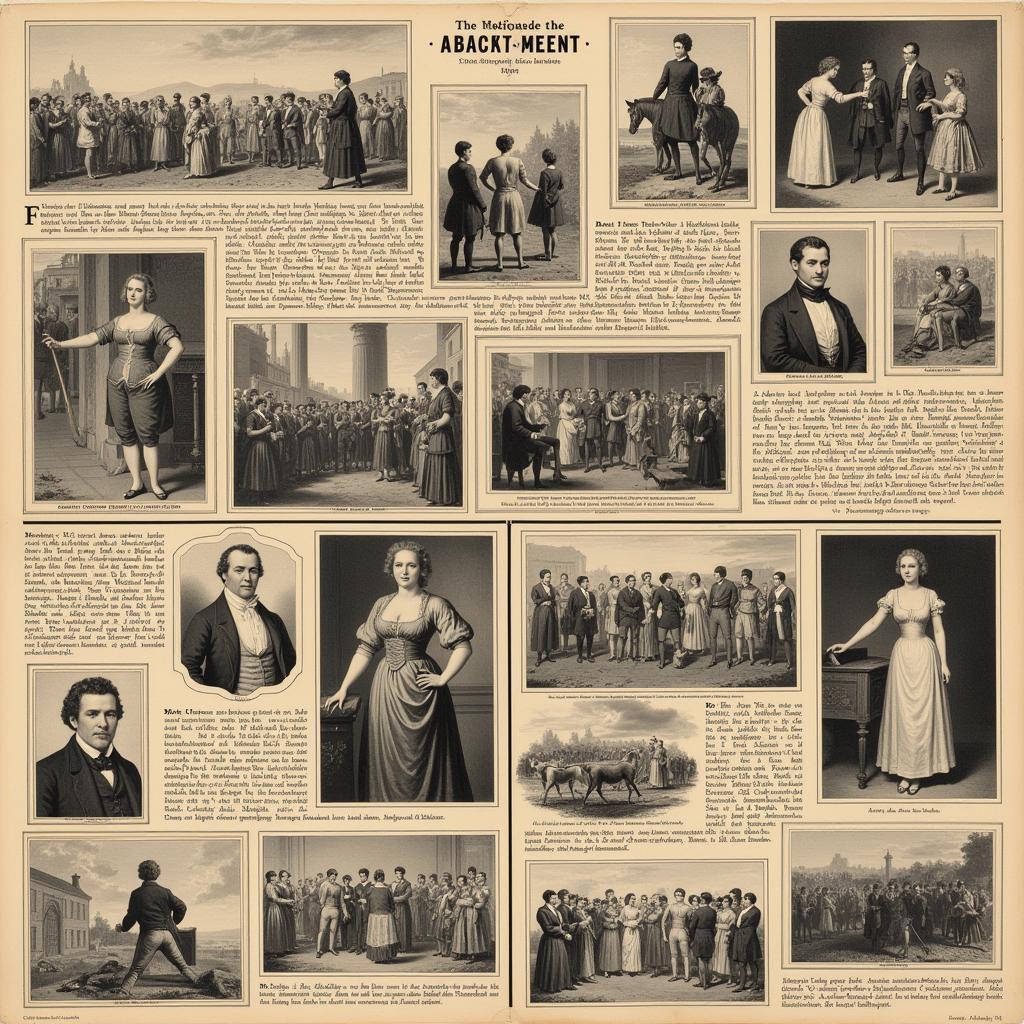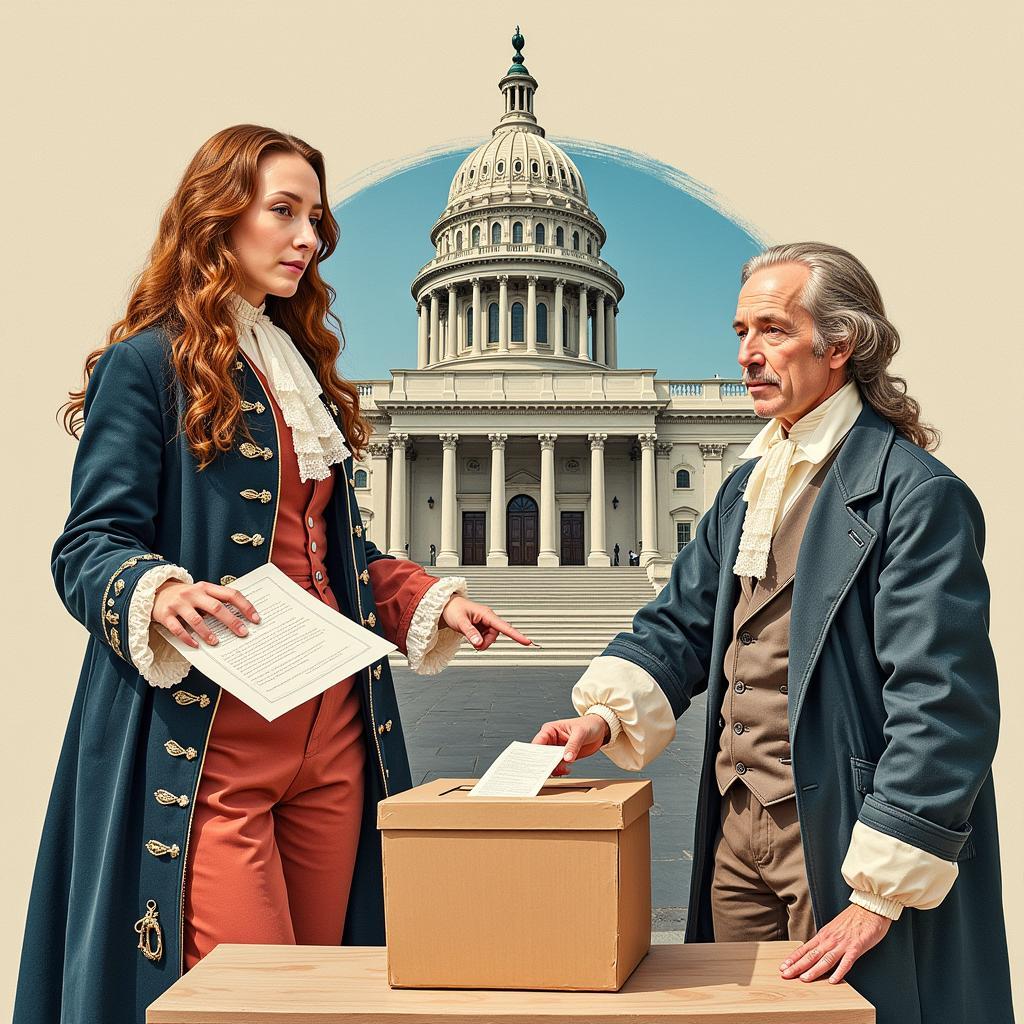The Enlightenment, a period of intellectual ferment spanning the 18th century, profoundly shaped the Western world. This era of philosophical awakening challenged traditional authority and championed reason, individual liberty, and progress. But how did Enlightenment philosophy affect government, society, and the arts? Let’s delve into the heart of this transformative period and uncover its lasting impact.
The Rise of Reason and Individualism
At the core of the Enlightenment lay a profound belief in the power of reason. Thinkers like John Locke and Immanuel Kant argued that individuals possess inherent rights and should be free from arbitrary rule. This emphasis on reason and individual autonomy directly challenged the prevailing social order based on divine right and absolute monarchy.
Revolutionizing Government: From Monarchy to Democracy
Enlightenment ideals ignited revolutionary movements across the globe. The American and French Revolutions, fueled by the writings of Locke, Montesquieu, and Rousseau, sought to replace oppressive monarchies with governments founded on the consent of the governed. The Declaration of Independence, with its resounding proclamation of “life, liberty, and the pursuit of happiness,” stands as a testament to the enduring legacy of Enlightenment thought on political systems.
Transforming Society: Equality, Education, and Progress
The Enlightenment’s emphasis on reason and individual rights reverberated throughout society. Thinkers like Mary Wollstonecraft challenged traditional gender roles and advocated for women’s education and equality. The abolitionist movement gained momentum, fueled by the belief that all humans are endowed with inherent dignity and freedom. The Enlightenment fostered a spirit of progress, encouraging scientific inquiry, innovation, and social reform.
 Social Reforms during the Enlightenment
Social Reforms during the Enlightenment
A New Era in the Arts: From Baroque to Neoclassicism
The arts underwent a significant transformation during the Enlightenment. The ornate and dramatic style of the Baroque gave way to Neoclassicism, which emphasized order, balance, and reason. Artists drew inspiration from classical antiquity, reflecting the Enlightenment’s admiration for ancient Greek and Roman ideals of democracy and civic virtue. Literature flourished, with writers like Voltaire and Jonathan Swift using satire and wit to critique societal ills and promote Enlightenment values.
Lasting Impact: A Legacy of Freedom and Progress
The Enlightenment’s impact extends far beyond the 18th century. Its emphasis on reason, individual rights, and democratic ideals continues to shape our world today. The principles enshrined in constitutions around the globe, from freedom of speech and religion to the separation of powers, stand as a testament to the enduring legacy of this transformative period.
 Modern Democracy and Enlightenment Ideals
Modern Democracy and Enlightenment Ideals
FAQs:
1. What were the main ideas of the Enlightenment?
The Enlightenment emphasized reason, individualism, natural rights, and progress. It challenged traditional authority and promoted the idea that government should be based on the consent of the governed.
2. How did the Enlightenment influence the American Revolution?
Enlightenment thinkers like John Locke directly influenced the American Revolution. His ideas about natural rights and the right to revolution are reflected in the Declaration of Independence.
3. How did the Enlightenment affect the arts?
The Enlightenment led to a shift from the Baroque style to Neoclassicism, which emphasized order, balance, and reason. Literature flourished, with writers using satire and wit to critique society.
4. What is the lasting legacy of the Enlightenment?
The Enlightenment’s legacy includes the principles of individual rights, democracy, and the separation of powers, which continue to shape governments and societies worldwide.
Need Support?
For any questions or assistance, please contact us:
Phone: 02043854663
Email: [email protected]
Address: Khu 34, Bắc Giang, 260000, Việt Nam.
Our dedicated customer support team is available 24/7 to assist you.